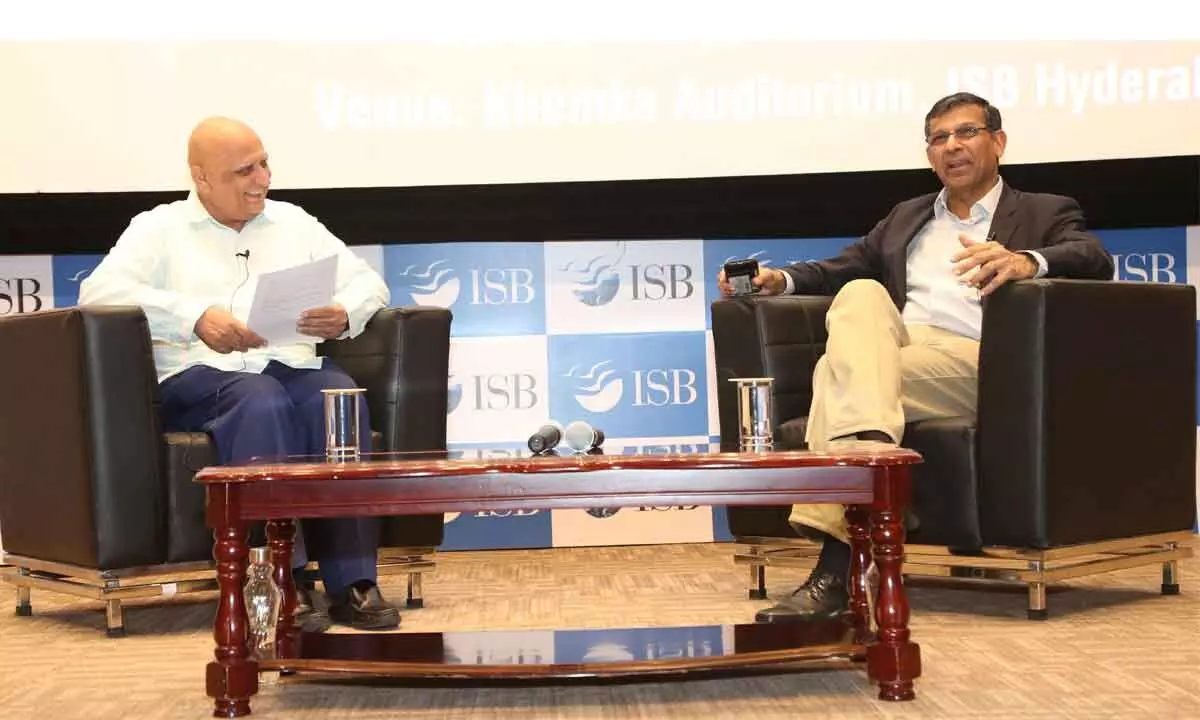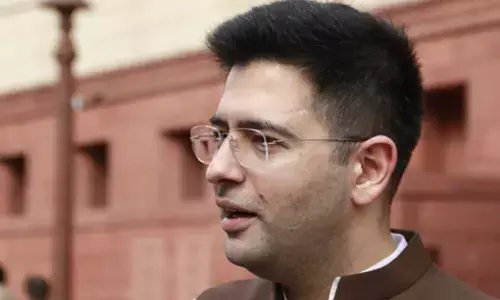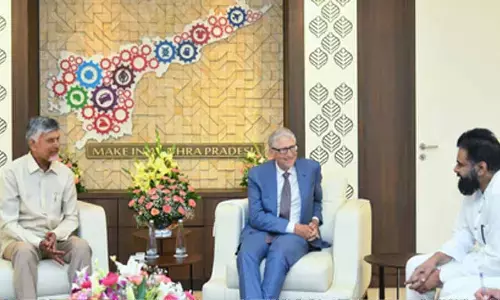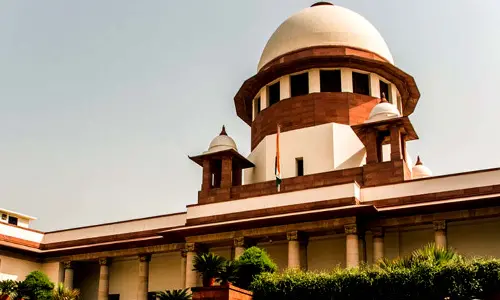Raghuram Rajan discusses his new book at ISB

“Former RBI governor was in a freewheeling chat at the Hyderabad campus of ISB with Bhagwan Chowdhry, Professor of Finance at ISB, about his book ‘Breaking the Mould: Reimagining India’s Economic Future’, co-authored with economist Rohit Lamba
Hyderabad: Raghuram Rajan, former governor of the Reserve Bank of India, spoke on some key strategies that can spur India’s growth in the coming decades, as he discussed his latest book, ‘Breaking the Mould: Reimagining India’s Economic Future’, at the Hyderabad campus of Indian School of Business (ISB).
In conversation with Bhagwan Chowdhry, Professor of Finance at ISB, at a special event on Sunday evening, Rajan underlined that the right and timely focus on the untapped human capital is pivotal to India’s economic growth. “We have to focus on India’s most important asset, which is its human capital.
We have 1.4 billion people, more than any other country in the world. If we can train a large number of these people well, [then] we have access to so much in terms of value creation! I would say, let’s start with that. Figure out what’s going wrong there and fix it.”
The book, ‘Breaking the Mould’, which he has co-authored with economist Rohit Lamba, provides a reality check on the processes and approaches adopted in India and comes up with practical and realistic paradigms that can fast-track India’s growth story and foster innovations and out-of-the-box growth models.
In response to a question by Prof Bhagwan Chowdhry on infrastructure development in India in recent years, Rajan stated that India’s deficiency historically has been implemented.
“The point simply is that we have a lot of plans; we implement fewer of them. But, as far as infrastructure goes, the government has implemented its plans,” he said.
He also spoke about the need to address problems such as malnutrition to ensure growth in the medium term, before making bigger plans.
The children who are suffering from malnutrition now would join the labour force 10 years from now, he underlined. He also urged governments to work on the lack of healthcare and educational facilities, before setting targets to become developed economies.
In advice to young people, including ISB students present, he noted that most youngsters look for jobs rather than creating jobs. “You can do the multiplier effect by taking up entrepreneurship.
This is what people expect from business schools,” he stressed, and added, “This (ISB) is one of the top business schools in India and it should create many entrepreneurs to add more and more jobs in the country.”
Co-author Rohit Lamba, in his remarks in the discussion, said to the youth, “Please engage with ideas. If you disagree with an idea, debate on it; but please do not point out fingers at each other… or question the intentions behind the ideas.”
Before the book discussion, Rajan was at the Indian School of Business to attend the ISB-NBER annual conference on Economic Policy and the Indian Economy. The conference, a collaborative effort between ISB and the US-based National Bureau of Economic Research (NBER), witnessed discussions by over 20 noted economists, academicians, and other experts, including Raghuram Rajan; Viral V Acharya, former Deputy Governor of RBI; Professor James Poterba, President and CEO, NBER; and Professors Bhagwan Chowdhry and Shilpa Aggarwal from ISB.
At present, Raghuram Rajan is the Katherine Dusak Miller Distinguished Service Professor of Finance at The University of Chicago Booth.
He was the 23rd Governor of the Reserve Bank of India between September 2013 and September 2016. Between 2003 and 2006, Rajan was the Chief Economist and Director of Research at the International Monetary Fund. His research interests are in banking, corporate finance, and economic development.








